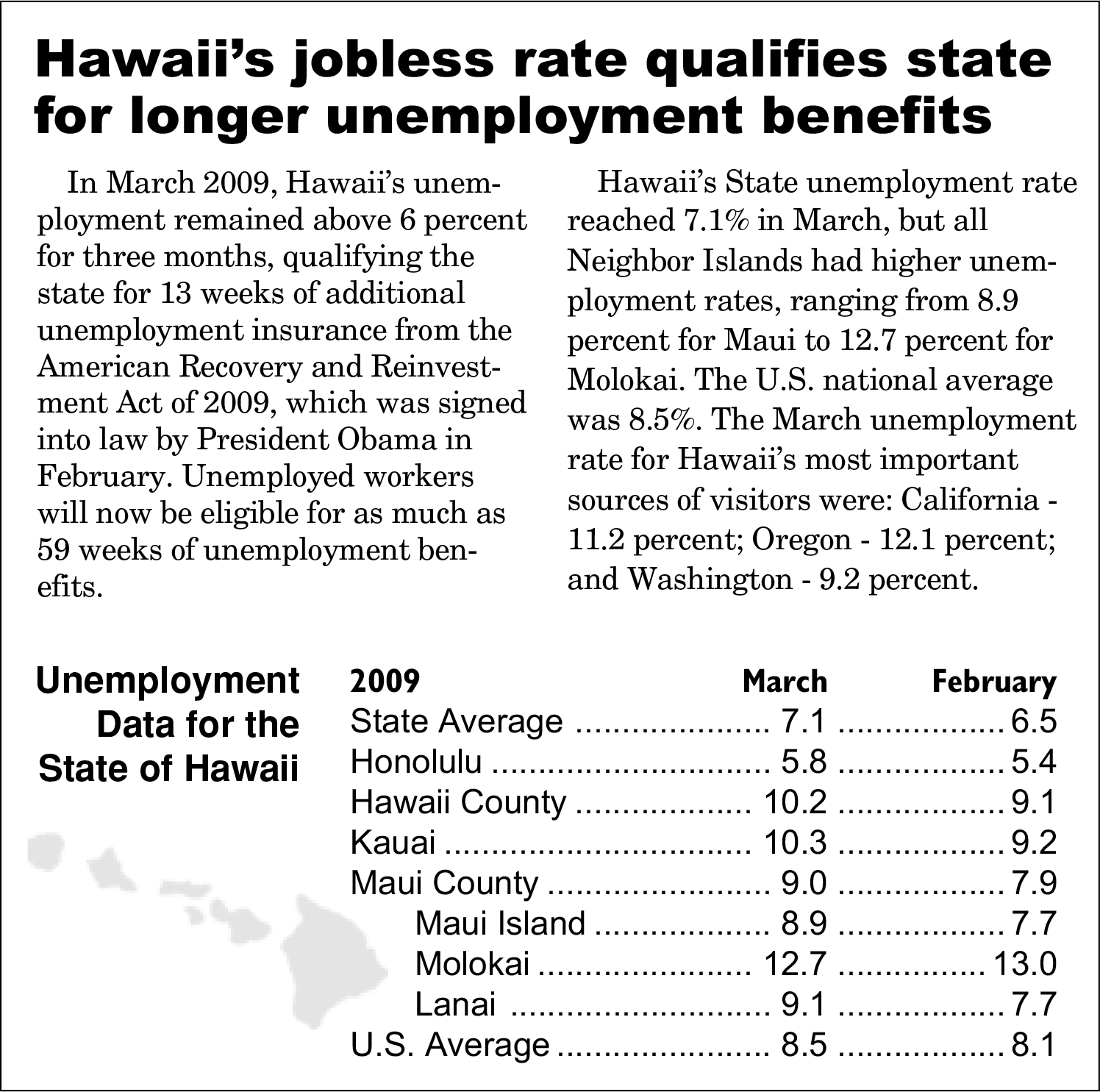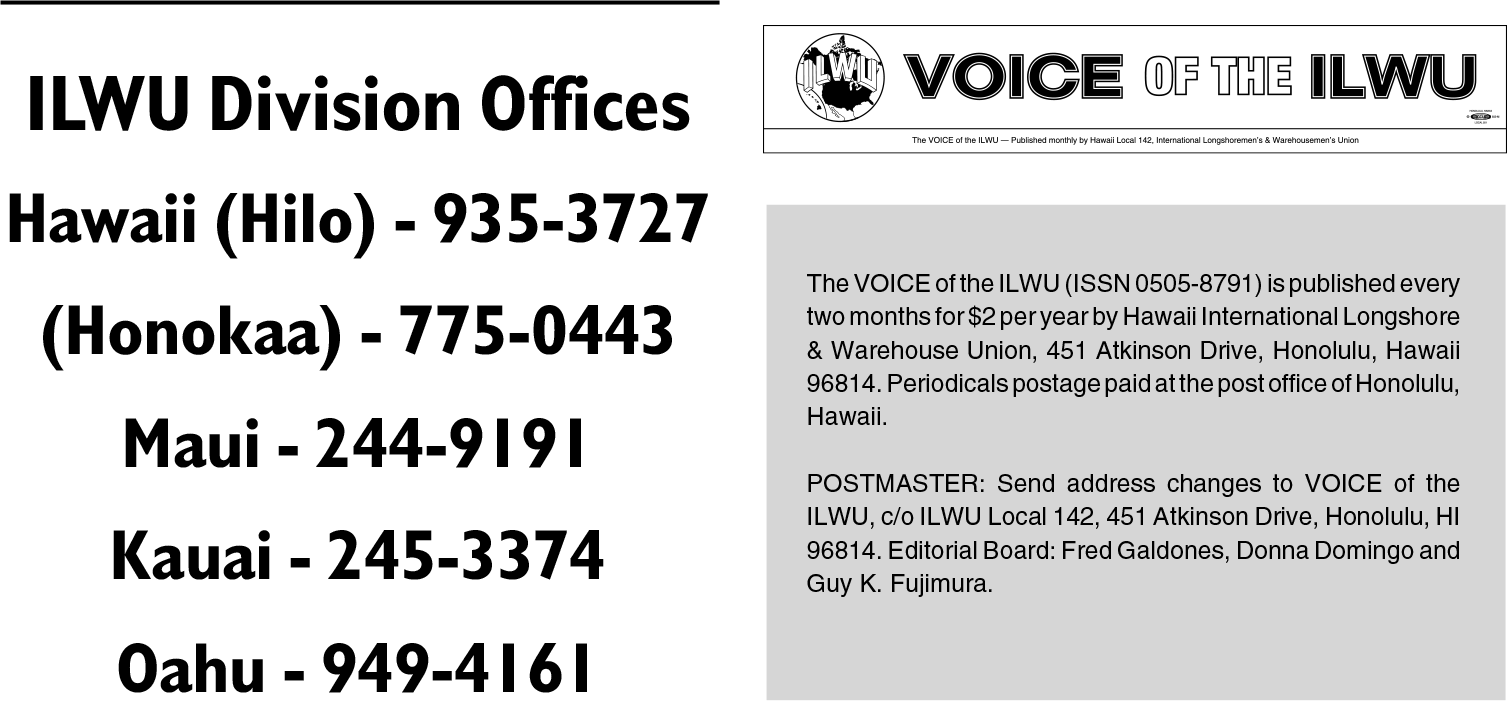President Obama’s economic recovery program will help working people in many ways.


Dole Pine members ok new contract
WAHIAWA—Oahu pineapple members ratified a new agreement with Dole Food Co. on May 1, 2009.
Only two companies continue to produce pineapple in Hawaii, Dole and Maui Pineapple. Del Monte shut down all of its Hawaii operations in 2007.
Hawaii once produced most of the world’s pineapple and can be considered the birthplace of the modern pineapple, which is now grown and eaten all over the world.
The sweet, golden pineapple which dominates the fresh fruit market and is grown worldwide are direct descendants of the MD-2 pineapple variety created in Hawaii. The genetic content of this pineapple was discovered in the laboratories of the Hawaii Pineapple Research Institute after years of cross breeding and experimentation.
It was in Hawaii that engineers invented the ginaca machine which peeled and processed the pineapple for canning.
Hawaii perfected the technology to ripen and harvest the fruit throughout the year and developed the cultivation methods which maximized yields.
According to data from the Food and Agricultural Organization of the United Nations, the most popular fruits are mangoes, bananas, oranges, pineapple.
Dole Food Company union negotiating committee members were: Jimmy Barreras and Matthew Rodrigues (Dole Fresh Fruit); Avelino Martin and Sam Ramirez (Dole Plantation); Business Agent Brandon Bajo-Daniel and spokesperson Fred Galdones.
Ineffective Bush security programs still in place
Following the attacks on 9/11 the Bush Administration rushed to implement a national security program that was supposed to prevent another terrorist attack on American soil. The program put in place by Bush was more to show the public that the government was doing something, then to provide real security.
One hundred percent of the passengers on commercial aircraft must go through screening, but screening of commercial cargo on the same aircraft was voluntary and only in 2009 was it required that 50 percent of the cargo be screened. Within the U.S., all-cargo carriers are supposed to screen heavy freight and private aircraft are supposed to follow security procedures. Surprisingly, the Transportation Security Administration (TSA) does not regulate foreign freight forwarders, or individuals or businesses that have their cargo shipped by air to the United States.
One hundred percent of dock workers must pass a security background check into their personal lives and must carry a TWIC card to go to work. However, only a fraction of incoming containers are inspected. Instead, established shipping companies can be certified as “trusted shippers” and avoid inspections. Hundreds of ports have expensive radiation detectors and x-ray imaging devices, but many do not work as promised by their manufacturers, have a high rate of false positives, and do not detect new threats such as biological weapons.
While time and funds are wasted on the low risk posed by air passengers and dock workers, far greater vulnerabilities received less attention. Critical electric power grids, tunnels, bridges, rail lines, nuclear power plants, chemical plants, dams, and water supplies remain vulnerable. Funds to train and equip first responders have been cut. Building capacity to respond to emergencies and recover after a disaster is shortchanged.

